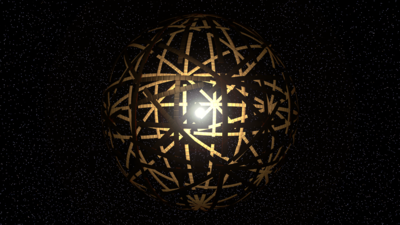Space travel in the future and how I feel about it
Let me get this straight: before getting too invested into distant future dreams, current problems need to be solved. But that's a topic that deserves a separate blog.
I really do like the prospect of space travel.
After all, humans are a curious species, and what better way to satisfy that curiosity than to travel to new places and travel out of our (relatively) tiny, rocky planet Earth?
I have no doubt humanity will be able to satisfy the scientific limitations. I mean, have you seen the absurd amount of technological development recently?!
To most people right now, the question isn't if a way to efficiently travel through space will be found, the question is when.
Will it be in our life times? Will we watch humanity become space-surfing aliens or will our great-great-great-grandchildren be there to witness it? No one knows yet.

However, it would be a lot of work. To explore the universe Star Trek style, we'll need to exceed the universe's speed limit, the speed mark which nothing can cross - the speed of light, 299,792,458 m/s. That's 299,792 kilometers or 186,282 miles, per second!
With that speed you could travel around the Earth in 13 milliseconds!
You'd think that would be way more than enough to travel through space (if we managed to somehow come close to the speed of light), but the universe is unimaginably enormous.
The nearest star to us that isn't our sun is Proxima Centauri, 4.2 light years away.
Don't get me wrong - if we do manage to reach it, it'll be such a great achievment which will probably change the course of humanity's future since there's a planet - Proxima Centauri D - orbiting Proxima Centauri that may be habitable. Just maybe.
But even if we do manage to travel at half the speed of light, in a galaxy of 100 - 400 billion stars, reaching just 1 star in 8 and a half years (or more) doesn't seem like much.
The most popular idea as of now is a warp drive, a concept from Star Trek which involves literally bending the fabric of the universe to travel faster than the speed of light.
If you haven't watched Star Trek or you're just a big geek like me, you can read the technical details here.
Another idea is a wormhole, which is, in essence, a bridge that can take you to a different point in space, or even a different point in time.

As of when I wrote this blog, we aren't even sure they exist. They're just a mathematical theory (for now).
However, if they do, they could take you a billion light years away, or just a few kilometers. They could take you, in time, to the beginning of the universe, 2 minutes ago, or the end of it.
But these are natural phenomena, and they're not something we can control unless we can make our own.
The warp drive is still more famous, however, as the theory is solid, experiments are in full swing and it's far more likely that we'll this method over being dependent on naturally forming wormholes.
There may be other theories I'm not aware of, feel free to tell me if I missed any :)
Another challenge is an energy source that produces enough energy to make us capable of driving through space.
One of the energy sources that can produce that much energy is the Sun, and that brings me to the concept of a Dyson Sphere.
Simply put, it's a megastructure we would build around a star like the Sun to absorb and use its energy. The whole Sun's energy, in our hands! It's a bit scary, really.

Another source could be a matter and anti-matter collision. This is gonna be hard since anti-matter is extremely rare and hard to create.
Not only that, if matter and anti-matter collide, they will probably completely annihilate each other and everything else in their surroundings by causing a HUGE explosion. By huge I mean even if 1 gram of both were to collide, it'd produce an explosion far bigger than the bombs of Hiroshima or Nagasaki.
Yeah...you see how this could be a really good energy source but also a nuke just waiting to be triggered?
Luckily for now, we don't produce enough for it to do anything, and we know how to make it not explode with regular matter. Let's see what happens in the future if this energy source is used.
Well, I've rambled on about science too much, let's consider the ethical and philosophical implications shall we?
Ethically, we don't know what the heck is gonna happen when we get to space. If we meet aliens (if aliens do exist, which I definitely believe they do) will they be friendly? Will they be too weak to cause harm to humanity? Will they be scared of us too and attempt to destroy us?
Who knows, but it's a risk that our curious little minds want to take. After all, "are we alone in the universe?" is an age-old question that everyone wants to know the answer to at some level.
Some argue that we shouldn't go to space because we weren't meant to go to space as humans. To that, I say, we were meant to reside in caves but here we are sitting in our fancy apartments, mansions and cool looking mobile houses.
Others argue that it's too risky, what if we get ourselves killed by a civilization we discover? Or an alien chemical plague?!
I agree that there's a risk involved but we really don't know how big of a risk (since we don't even know what's out there), which implies that that argument is based on a fear of the unknown.
It comes down to a matter of opinion. Should we go to space? Most explorers say yes, and I do too.
It feels so far in the future, it feels like something out of a sci-fi film!
You've got to remember though, we've made incredible progress in recent decades and there's one thing that (most of) humanity agrees on: these leaps of progress aren't gonna stop anytime soon.